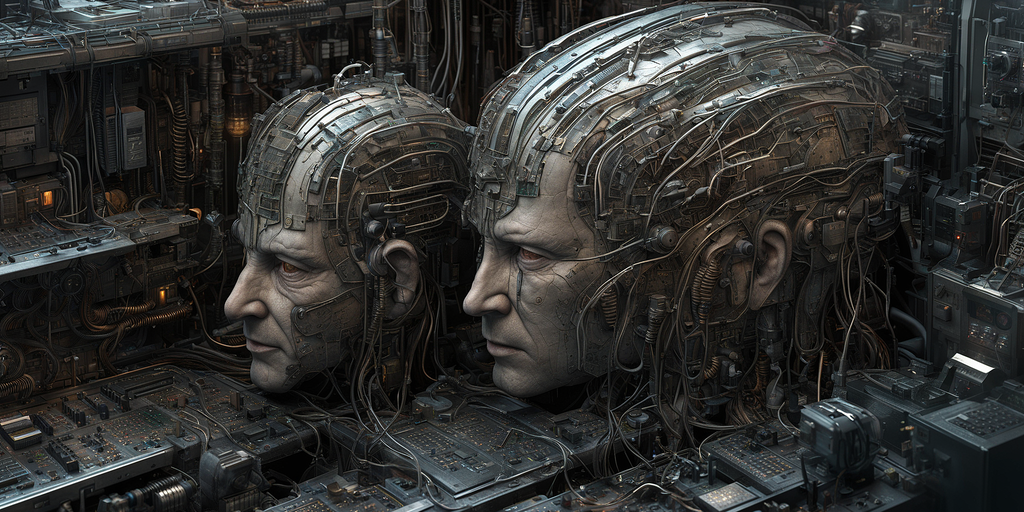Google researchers have discovered a new technique that could finally make quantum computing practical in real life, using artificial intelligence to solve one of science’s most persistent challenges: more stable states.
In a research paper published in Nature, Google Deepmind scientists explain that their new AI system, AlphaQubit, has proven remarkably successful at correcting the persistent errors that have long plagued quantum computers.
“Quantum computers have the potential to revolutionize drug discovery, material design, and fundamental physics—that is, if we can get them to work reliably,” Google’s announcement reads. But nothing is perfect: quantum systems are extraordinarily fragile. Even the slightest environmental interference—from heat, vibration, electromagnetic fields, or even cosmic rays—can disrupt their delicate quantum states, leading to errors that make computations unreliable.
A March research paper highlights the challenge: quantum computers need an error rate of just one in a trillion operations (10^-12) for practical use. However, current hardware has error rates between 10^-3 and 10^-2 per operation, making error correction crucial.
“Certain problems, which would take a conventional computer billions of years to solve, would take a quantum computer just hours,” Google states. “However, these new processors are more prone to noise than conventional ones.”
“If we want to make quantum computers more reliable, especially at scale, we need to accurately identify and correct these errors.”
Google’s new AI system, AlphaQubit, wants to tackle this issue. The AI system employs a sophisticated neural network architecture that has demonstrated unprecedented accuracy in identifying and correcting quantum errors, showing 6% fewer errors than previous best methods in large-scale experiments and 30% fewer errors than traditional techniques.
It also maintained high accuracy across quantum systems ranging from 17 qubits to 241 qubits—which suggests that the approach could scale to the larger systems needed for practical quantum computing.
Under the Hood
AlphaQubit employs a two-stage approach to achieve its high accuracy.
The system first trains on simulated quantum noise data, learning general patterns of quantum errors, then adapts to real quantum hardware using a limited amount of experimental data.
This approach allows AlphaQubit to handle complex real-world quantum noise effects, including cross-talk between qubits, leakage (when qubits exit their computational states), and subtle correlations between different types of errors.
But don’t get too excited; you won’t have a quantum computer in your garage soon.
Despite its accuracy, AlphaQubit still faces significant hurdles before practical implementation. “Each consistency check in a fast superconducting quantum processor is measured a million times every second,” the researchers note. “While AlphaQubit is great at accurately identifying errors, it’s still too slow to correct errors in a superconducting processor in real-time.”
“Training at larger code distances is more challenging because the examples are more complex, and sample efficiency appears lower at larger distances,” a Deepmind spokesperson told Decrypt, ” It’s important because error rate scales exponentially with code distance, so we expect to need to solve larger distances to get the ultra-low error rates needed for fault-tolerant computation on large, deep quantum circuits.
The researchers are focusing on speed optimization, scalability, and integration as critical areas for future development.
AI and quantum computing form a synergistic relationship, enhancing the other’s potential. “We expect AI/ML and quantum computing to remain complementary approaches to computation. AI can be applied in other areas to support the development of fault-tolerant quantum computers, such as calibration and compilation or algorithm design,” the spokesperson told Decrypt, “at the same time, people are looking into quantum ML applications for quantum data, and more speculatively, for quantum ML algorithms on classical data.
This convergence might represent a crucial turning point in computational science. As quantum computers become more reliable through AI-assisted error correction, they could, in turn, help develop more sophisticated AI systems, creating a powerful feedback loop of technological advancement.
The age of practical quantum computing, long promised but never delivered, might finally be closer—though not quite close enough to start worrying about a cyborg apocalypse.
Edited by Sebastian Sinclair
Generally Intelligent Newsletter
A weekly AI journey narrated by Gen, a generative AI model.







